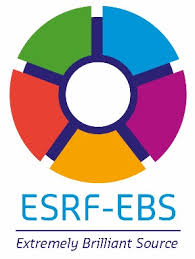- Home
- Events
- Conferences and Workshops
- 2019
- Short Pulse Science
Short Pulse Science
ESRF - EBS Workshop Series

Workshop on
Short Pulse Science with the Extremely Brilliant Source
ESRF - Grenoble - France
28 - 29 October 2019
|
Registration now closed.
Scope
The aim of the workshop is to discuss short-pulse experiments with the Extremely Bright Source (EBS) which is under construction at the ESRF in Grenoble. The ESRF is shutdown in 2019 for the installation of the ESB lattice. First beam is planned for Dec 2nd, 2019 and user operation will resume in Sep 2020 . The new ring is a seven-bend-acromat lattice: the electron beam is bend by seven permanent magnets in a less curved trajectory, which greatly lowers the energy and orbit dispersion or the electron beam. As a result, the horizontal emittance is lowered by a factor 30. The undulator spectra will become sharper and the spectral brightness will increase by factors 2-5 on most beamlines. The most dramatic improvement is the increased coherence: the beam will become 100% coherent in the central part of the beam with an increase in intensity of 10-30. The EBS pulse length will be the same as for the ESRF, 100 ps (fwhm), the instrumental time resolution for pump-probe experiments.
To exploit the novel properties of the EBS, four flagship beamlines will be build between 2019 and 2024: EBSL1 for Coherent Beam Experiments on ID18, EBSL2 for a Hard X-ray Diffraction Microscope on ID03, EBSL3 for large field tomography on BM18 and EBSL8 for serial crystallography.
The new EBS beams will be a great advantage for time resolved XRD, SAXS & WAXS, XAS , XES, XPCS imaging and dynamic compression. In addition many of our beamlines will have new detectors like the Eiger II and Jungfrau with single-photon sensitivity at higher energies and faster time resolution. The data flow from the new detectors is a great challenge and will require new tools fast data inspection and analysis.
You will find in the section "Preliminary list of speakers" the experts who have been invited to the workshop.
Registration
A fee of 100 € is charged covering the workshop dinner on Monday 28th October, lunches at the EPN campus restaurant on Monday 28th and Tuesday 29th October as well as coffee breaks during the workshop. Accommodation is also covered by the fee and will be provided at the guesthouse.
However, participants have to arrange and pay for their own travel to/from Grenoble.
Deadlines
Registration deadline: 07/10/2019



